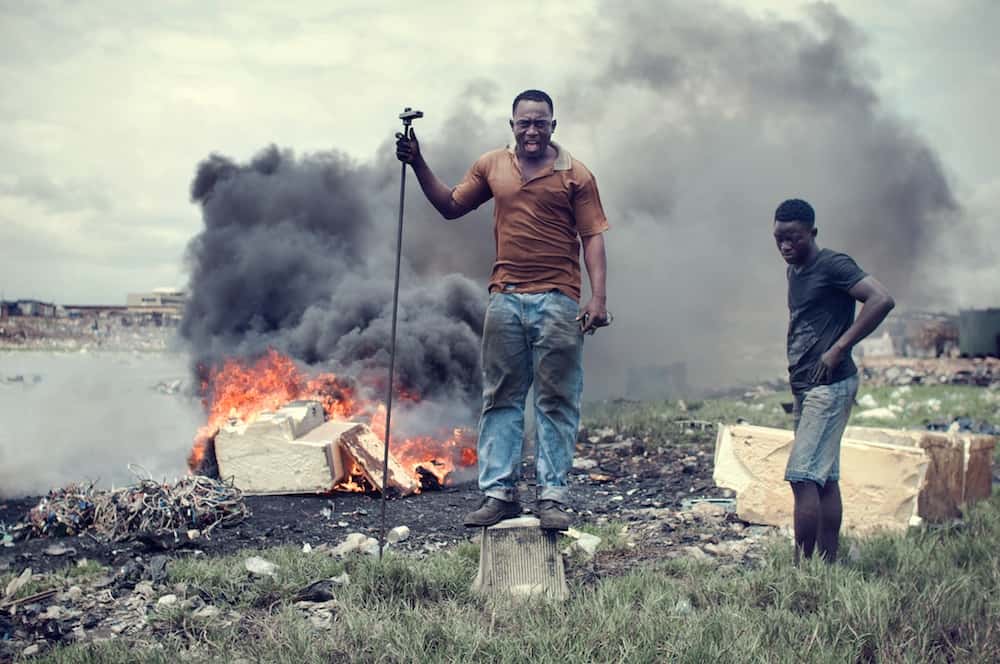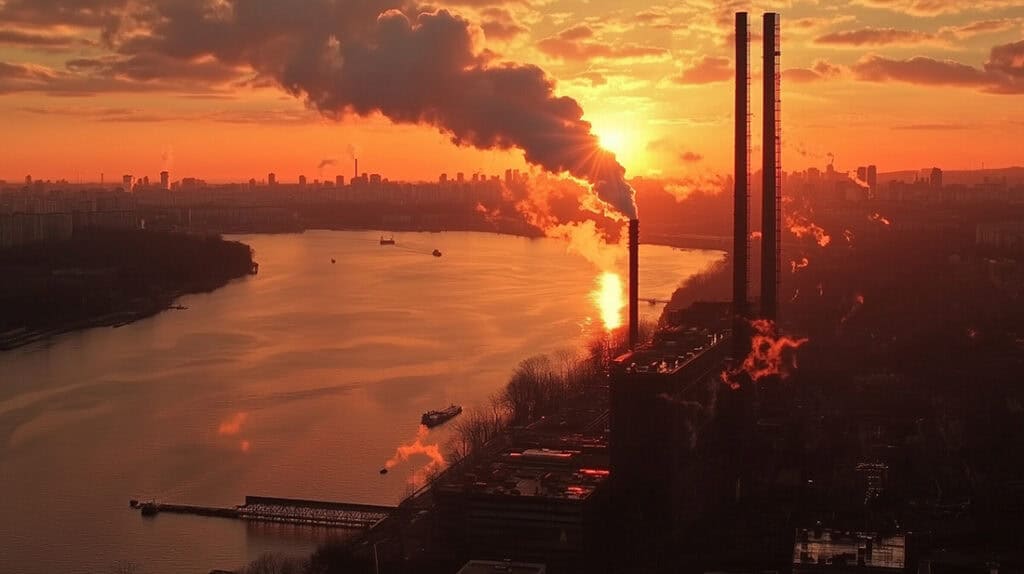In a suburb of Accra, the capital city of Ghana, there lies a landscape that would not look out of place in Hollywood’s next apocalypse films.
Piles of discarded electronics, plumes of toxic smoke and a list of health hazards populate the area, all in the name of plastic recycling.
Mountains of waste
Each year, Ghana imports 215,000 tons of E-waste, with another 129,000 tons being generated in the country. Assuming this growth continues at its current trend, these numbers will have doubled by 2020. Half of this e-waste can be re-used, as for the rest…
250,000 lives in danger
…it finds its way to Agbogbloshie, an area that was once a fertile wetland and is now the largest E-waste dump in the world as well as being one of the Top 10 Toxic Threats of 2013. Children as young as 12 work on the site, stripping valuable components, such as copper, from the electronics. The favoured method of doing this? Burning. To access the copper inside of the wires, workers on the site will start a fire using Polystyrene and burn away the rubber casing. This creates a highly dangerous toxic smoke, as many of these casings contain elements of lead. Workers on the plastic recycling site suffer from many injuries, including burns, untreated wounds, eye damage, lung and back problems, chronic nausea, debilitating headaches and respiratory problems. Many of them will develop cancer and die before they are 30.
This unacceptable standard of living is everyday life for the people of Agbogbloshie. Kevin McElvaney, the photographer who visited the plastic recycling wasteland to take these pictures, expressed confusion as to why the workers seemed satisfied. They responded that, for many, working on Agbogbloshie, even with all its many hazards, was still better than what they had come from. McElvaney went on to write about how most of the boys on the site group together and work as a team, almost like a family, to help each other.
A poisoned earth
Studies have shown that samples taken from the Agbogbloshie perimeter found lead levels as high as 18,125 ppm. Compare this to the standard set in the US by the EPA of 400 ppm, and a problem immediately becomes apparent. The danger becomes even more apparent when the workers themselves are examined. One worker on the site had aluminium exposure levels of 17mg/m3 which is over three times the exposure limit value given by the Occupational Safety and Health Administration.
Levels of toxicity such as this would be unacceptable in a Western culture, so why should they be allowed to continue here?
Hope for the future
As dire as these circumstances may seem, there is still hope for a better future. Not-for-profit organization Blacksmith Institute, along with their partner Green Advocacy Ghana, have been working to reduce the risk in the area since 2008. Their main way of doing this has been through the use of comprehensive health and safety training, educating the workers on how to safely deal with the various hazards of working with plastic recycling. In 2010 hand wire-stripping tools were introduced in an attempt to lower the levels of air pollution brought about by burning the rubber casings around wires. Unfortunately, burning remained the preferred method for many.
The organization had more success on October 9th, 2014, when they set up a new E-waste and plastic recycling facility in Agbogbloshie. Equipped with four automated machines that can pull apart plastic casings and strip wires of various sizes, this facility was initially met with distrust by the workers, who believed that it would take away their livelihoods. However, once it was explained that the machines simply gave them a non-toxic way to do their jobs, the workers rapidly adopted them. This gives the region hope for a cleaner future, though it is a long road to fixing the damage already done.
By Reece Wilding
Photographs courtesy of Kevin McElvaney, pleases show your support for his work.








